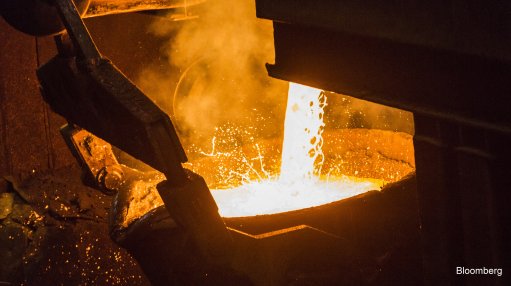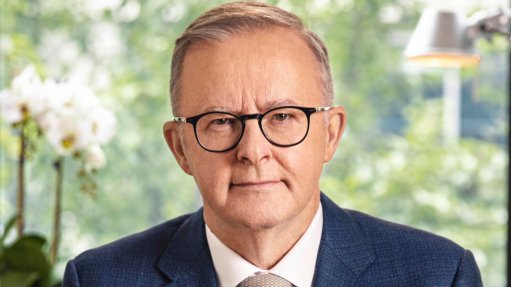No pot of gold for locals as China mines Sierra Leone
MASUMBIRI, Sierra Leone – When the Chinese gold miners came to Masumbiri town in northern Sierra Leone, everyone lined up for jobs.
Teenagers lied about their age. Women and girls went to cook and clean at the miners' camp, a gated compound on a nearby mountainside overlooking rice fields.
Dayu, a private company that started working in Sierra Leone last year, was just the latest in a line of Chinese firms drawn to the mineral-rich ground of the West African State's Tonkolili district in search of gold.
"The people were happy at first because of the employment," said Hassan Tholley, Masumbiri's weary-looking chief, sitting on his porch alongside village elders in the dirt-road town.
Hundreds of young men in hard hats were soon bringing home pay checks and the town of 5 000 people had a cell signal and water pumps for the first time - all courtesy of Dayu.
But 18 months into the multimillion-dollar project, locals said the income they earned did not make up for their loss of land and that poverty was worsening.
Like many African countries, Sierra Leone has courted foreign companies which pay governments big fees for mining rights, while locals often feel they have no say nor benefit.
China is by far the biggest importer of minerals from sub-Saharan Africa; it invested about $30-billion in metals mining on the continent in the last decade, nearly 15% of it in Sierra Leone.
Gold mining has been a relatively small industry in Sierra Leone compared to diamonds or iron ore, but is growing with companies such as Dayu, which says it has the biggest underground gold mine in the country - its only project.
Various smaller Chinese outfits, some operating illegally, have also been mining gold in the area alongside the big firms.
"Looking at the mining, there should have been a lot of development in these communities," said Mohamed Smooth Bangura, a Tonkolili district councilman.
On the pot-holed, mud track toward Masumbiri, rusted signs announced mining companies that have come and gone. The only new roads, cars or buildings for miles around were at the Chinese camp.
JOBS
From his shop on Masumbiri's main street filled with locks, t-shirts and watches, Ibrahim Thulleh said business had dropped.
"People have less money to spend since Dayu came," he said, sitting in the open-air shack on a hot afternoon.
Before Dayu, there had been no big mining company for a few years. People flocked to the town to pan for gold, often getting lucky and coming to spend their earnings at Thulleh's store.
Dayu hired about 350 locals, and other miners left town since the company took over their mining sites.
When workers are paid - each one earns between $50 to $150 a month – they distribute it to family and neighbours and use it to pay off debts, Thulleh said.
"At the end of the month, there is no money left," said 29-year-old miner Abdulai Kargbo, who has one of the higher-paying jobs: blasting and drilling into the mountain for gold.
Before Dayu, he gave rides on his motorbike and made $10 to $15 a day, more than twice as much as now, said the father of six.
The benefits of a steady job do not make up for the pay cut, he said. In a few weeks, after he has worked at the mine for a year, he plans to quit and go back to his motorbike.
William Bangura, who has two sons working for Dayu, could not think of anything the family could now buy that they could not afford before.
"It is only enough to get by," he said. Still, he was grateful for the jobs: "We have no other option."
Instead of being sifted by hand and sold locally, gold dust is now crushed from rocks in a mountainside processing plant.
In the last room, large white bags are stacked on the floor, full of grey powder containing a few grammes of gold. At this stage, they are trucked to the port and shipped to China.
SPREAD THE WEALTH
Sierra Leone is "open for business" according to President Julius Maada Bio, who has touted the message to investors in China, Britain and the United Arab Emirates since taking office last year with a pledge to ensure mining benefits the country.
Companies like Dayu pay $500 000 a year to the government for a large-scale mining licence and are required to put 0.01% of their revenues into community development, according to the mining code.
But the policies on community development are unclear and this law has not always been applied, the government said last year in a new mining policy intended to kickstart reforms.
Dayu has decided to raise its contribution to 1%, but is still in talks with locals on terms, said the company's community manager Mohamed Daffae.
Three towns in the area have different demands.
One wants a school, another a health centre, and the third needs drinking water, said councillor Bangura.
Only the water pumps have been installed so far, but the water comes straight from the river, unfiltered.
"We try our best to help with community development," said Dayu's general manager Peng Hui Yao.
"We really want to create happiness with the local people."
Daffae said people were impatient, that benefits would come.
"The biggest challenge is understanding the concession," said Daffae, sitting in an office at the compound.
People feel like the land and minerals are theirs but they have no licence, he said.
Dayu's agreement with the government gives it access to 9.6 km2 for 25 years.
Recently, Daffae faced pushback from locals who were mining in an area where the company wanted to dig.
"I had to go there and tell them you cannot stop this type of operation, this is for all of us," he said.
Comments
Press Office
Announcements
What's On
Subscribe to improve your user experience...
Option 1 (equivalent of R125 a month):
Receive a weekly copy of Creamer Media's Engineering News & Mining Weekly magazine
(print copy for those in South Africa and e-magazine for those outside of South Africa)
Receive daily email newsletters
Access to full search results
Access archive of magazine back copies
Access to Projects in Progress
Access to ONE Research Report of your choice in PDF format
Option 2 (equivalent of R375 a month):
All benefits from Option 1
PLUS
Access to Creamer Media's Research Channel Africa for ALL Research Reports, in PDF format, on various industrial and mining sectors
including Electricity; Water; Energy Transition; Hydrogen; Roads, Rail and Ports; Coal; Gold; Platinum; Battery Metals; etc.
Already a subscriber?
Forgotten your password?
Receive weekly copy of Creamer Media's Engineering News & Mining Weekly magazine (print copy for those in South Africa and e-magazine for those outside of South Africa)
➕
Recieve daily email newsletters
➕
Access to full search results
➕
Access archive of magazine back copies
➕
Access to Projects in Progress
➕
Access to ONE Research Report of your choice in PDF format
RESEARCH CHANNEL AFRICA
R4500 (equivalent of R375 a month)
SUBSCRIBEAll benefits from Option 1
➕
Access to Creamer Media's Research Channel Africa for ALL Research Reports on various industrial and mining sectors, in PDF format, including on:
Electricity
➕
Water
➕
Energy Transition
➕
Hydrogen
➕
Roads, Rail and Ports
➕
Coal
➕
Gold
➕
Platinum
➕
Battery Metals
➕
etc.
Receive all benefits from Option 1 or Option 2 delivered to numerous people at your company
➕
Multiple User names and Passwords for simultaneous log-ins
➕
Intranet integration access to all in your organisation


















